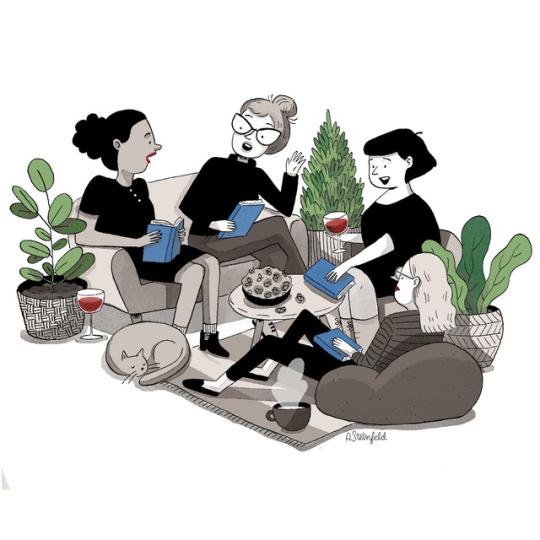Photo
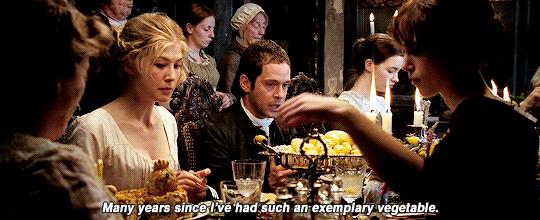
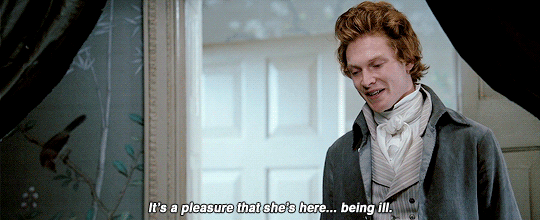

Socially Awkward Bachelors, a novel by Jane Austen.
76K notes
·
View notes
Quote
O my good lord, the world is but a word.
Were it all yours to give it in a breath,
How quickly were it gone.
Timon of Athens by William Shakespeare, II.ii.147 (via hyacinthgirlquotes)
140 notes
·
View notes
Text
I firmly believe that there’s a “right” time to read a certain book. It’s okay if you’re interested in a book and it sits on your shelf for years. Maybe it didn’t call out to you when you wanted something to read because it was waiting for the right time to mean the most to you. Not saying this is always the case, but this has happened enough to recognize the magic.
77K notes
·
View notes
Photo
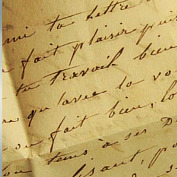

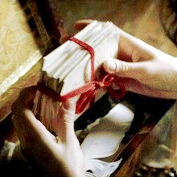






heroine moodboards: Anne Elliot
“All the privilege I claim for my own sex (it is not a very enviable one; you need not covet it), is that of loving longest, when existence or when hope is gone.”
871 notes
·
View notes
Text
Book Review: Bodega Dreams
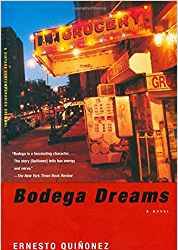
Bodega Dreams, by Ernesto Quinonez (2000)
Why I Read It: As research for directing our fall show
Where I Got My Copy: From the public library -- which I couldn’t believe had a copy!
Imagine if Nick Carraway in The Great Gatsby had been drawn into Gatsby’s scheming and some of his corrupt and illegal plans and deals, while simultaneously managing to maintain his clear-eyed, neutral perspective. Then place the story in Spanish Harlem, amid the drug deals, struggle for upward mobility, and fears of gentrification -- with the phonetically-rendered dialect and possibly stereotypical* portrayals of inner-city life to match.
As in Fitzgerald’s novel, the narrator is of secondary interest; the true protagonist is the self-styled King of the Barrio, Willie Bodega. Willie offers the residents of the neighborhood anything they need, from decent housing to college tuition, asking only their loyalty in return. Like Gatsby, he is a dreamer; unlike Gatsby, his dreams are more for others and for the neighborhood than for himself. And like Gatsby, it is his clinging to a past love that proves his undoing.
The ending doesn’t quite live up to the rest of the narrative and certainly not to the brilliance of Fitzgerald’s elegiac memorial to the impossibility of Gatsby’s dreams. But overall the high-energy narration and memorable characters make this a rewarding read.
* Not being from the inner city, I can’t accurately gauge the accuracy of Quinonez’s images and situations. They just seem to me like the same images and situations I’ve encountered in many, many other stories.
Verdict: B+
Fate of Book: Return to library but keep an eye out for a copy of my own.
3 notes
·
View notes
Text
Book Review: How the Garcia Girls Lost Their Accents
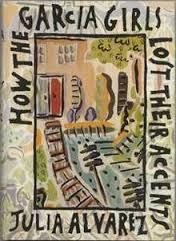
How the Garcia Girls Lost Their Accents, by Julia Alvarez (1991)
Why I Read It: As research for directing our fall show
Where I Got My Copy: From the public library. I own a copy in my classroom library, but that’s packed away and being moved to a new classroom!
I really don’t understand why this novel is so often shelved in the young adult sections of libraries. Perhaps because it has “girls” in the title...? It’s a challenging novel even for an adult reader: the story, told in backwards chronology, of four sisters forced to flee the Dominican Republic and to adapt to a new and not-always-welcome life in New York.
Alvarez is a powerful, lyrical writer, and her sentences and images slid by, creating a wonderfully collage-like sense of the girls’ lives. I was also fascinated by the way she explored both the ordinary events of growing up and the indelible ways that those events and one’s psyche are affected by shifting countries and cultures. It’s clear that some of the girls’ experiences are universal, and some are not.
The backwards chronology really didn’t work for me, though. In theory, it’s an interesting idea: to show the effects first, then the cause. But I found it too difficult to keep track of the four girls and their parents -- I couldn’t see how the Trujillo regime or the immigration to America had affected them because I couldn’t keep their personalities straight from one another. Even by the end of the book, I didn’t feel like I understood them as individuals; rather, I understood their experiences as one collective experience, which I don’t think is quite what Alvarez was going for.
Verdict: B
Fate of Book: Return to library -- hopefully on time!
1 note
·
View note
Text
You walk in a room to find that the only way to escape is by writing a name of a real person on a piece of paper. This will kill that person.
99K notes
·
View notes
Text
Book Review: In the Time of the Butterflies
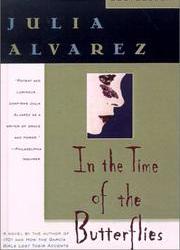
In the Time of the Butterflies, by Julia Alvarez (1994)
Why I Read It: As research for directing our fall show
Where I Got My Copy: Pretty sure I bought it at a yard sale, given the condition.
In a post-script to the novel, Alvarez discusses the difficulty of writing the story of the Mirabal sisters, Dominican martyrs and national heroines, since neither the simple facts of their lives nor their near-mythic status in the Dominican Republic really allow a researcher, writer, or reader to get to know them as people. She also writes that her goal in writing the novel was to introduce these sisters and their story to English-speaking people, including those whose government helped bring to power the dictator who murdered them.
In both these ways, she succeeds both beautifully and heart-wrenchingly. These Mirabal sisters are vividly alive, not just idealistic and passionate revolutionaries but also individuals and women devoted to their educations and careers and to their families. It is clear that they would have chosen different lives if they could, but this strengthens rather than weakens their resolve to create a country in which all Dominicans are free to make those choices.
This was not a book I could fully sink into. Alvarez’s narrative voice was clear and precise yet sometimes dry: I was always aware that I was reading about the Mirabal sisters, rather than entering into their lives and experiences. In some cases, though, that was clearly an authorial choice: the ending is gut-wrenching not in what it says, but in what it leaves unsaid -- and unknown. We will never know what the Mirabal sisters went through in those final moments of their lives -- nor what they would have thought of the free Dominican Republic they helped to bring into being (although Alvarez hints that they might have found the work of revolution not yet complete).
Viva las Mariposas!
Verdict: A-
Fate of Book: This copy will be recycled, since a couple of pages have been torn in half. But I want a new copy for my classroom library.
#in the time of the butterflies#julia alvarez#book review#books#reading#jar of book-stars#tw: violence
2 notes
·
View notes
Text
Book Review: The Brief Wondrous Life of Oscar Wao
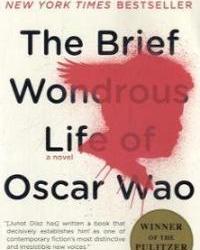
The Brief Wondrous Life of Oscar Wao, by Junot Diaz (2007)
Why I Read It: As research for directing our fall show
Where I Got My Copy: Inherited from a retired teacher who liked to buy copies of recent bestsellers to have in her classroom library.
I don’t get it.
I so badly wanted to love this book. I mean, it had the glowing reviews. The POC narrator. The insight into the immigrant experience. It had the freakin’ Pulitzer Prize! Not only did I want to love this book, I honestly expected to love this book.
And there were elements that I enjoyed. I liked the wide scope of recent Dominican history, as told through the experiences of not only the title character but also his mother and sister. I liked the chance to learn about a place that my education left out entirely. I liked the wry narrative voice, and the way Yunior told even the most horrific elements of the story with simple honesty, not relying on pathos since the events arouse plenty of sympathy and horror all on their own.
But the actual story, with its crude and almost unbelievably single-minded focus on sex, left me cold. Oscar and his family are fascinating characters, but the portrayal of their personalities and ambitions is almost completely stifled by the obsessive details of their sexual pasts, proclivities, escapades, and desires. Maybe this was supposed to tell us something about the narrator, but it was just too much for me. I try not to be a prude in my reading, but there are so many other aspects of the human experience to explore.
Verdict: D
Fate of Book: Take back to school and... probably not recommend to students.
#the brief wondrous life of oscar wao#junot diaz#book review#books#reading#jar of book-stars#tw: violence#tw: abuse#tw: suicide
0 notes
Quote
I have no use for people. I find people weird and confusing.
Mr. Darcy (via incorrectliteraryquotes)
569 notes
·
View notes
Text
Book Review: The Good Braider
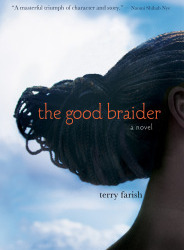
The Good Braider, by Terry Farish (2012)
Why I Read It: Preparing to teach it to honors-level freshmen in the fall
Where I Got My Copy: Bought on Amazon, since the ordered copies won’t be in until late August (and I can’t write in library books.
There are so many things I LOVE (and am so excited to teach) about this book. Even though it’s strange to say, I love its brutally clear-eyed depiction of war: it’s gut-wrenchingly hard to read, but it gives an impossible-to-ignore portrayal of what drives people to flee their homelands and seek the protection and asylum of life in America. That clarity doesn’t end when (*minor spoilers*) Viola and her mother successfully make it out of Sudan and to Maine; instead, Farish demonstrates deep and compassionate understanding of the crucial difference between immigrants and refugees, who have been forced out of their country through no fault of their own and who face immense internal and external pressure to adapt to American life while simultaneously maintaining their own culture and their own way of life. The conflict between Viola and her more traditional mother is mirrored within Viola herself, creating a character of depth, complexity, and so much strength and resilience that I know she will be with me (and with my students) for a long time to come.
On the other hand, we all know that America is not always the promised land, especially for new immigrants and people of color. Although there are a few references to casual racism faced by the Sudanese community, the few fully-developed American characters are somewhat unrealistically perfect in their acceptance, their openness, and their generosity. While I’m really proud of the way my state has welcomed Sudanese and Somali refugees in real life, I’m concerned that it’s a little problematic for a white author to portray Americans with such rose-colored glasses.
Verdict: A-
Fate of Book: Take to school!
1 note
·
View note
Text
Jar of Book-Stars: The Book-Clearing Project
Hello (to the void)!
Like so many who love to read, I have an enviable problem: I buy more books than I have room for and want to buy more than I could ever read -- like, in my whole lifetime. (I do realize this is the first-world-iest of first-world problems.)
The secondary problem is that when I buy a new book, it immediately looks more interesting than the hundreds of unread books sitting patiently on my shelves, waiting for their turn.
So about a year ago, I devised a solution based on the adorable TBR jars I’ve seen floating around the Internet. I wrote my entire library on strips of paper, folded them into puffy stars (because it was the end of a very bad school year and I was going bananas), and stuffed them in a jar. New books are selected from the jar (unless I have some other reason to read the book), and each one gets at least 10% of its length. If I make it to the end, I keep the book if a.) I can imagine myself re-reading it, or b.) I can imagine recommending/lending it to someone else.
And since I’m not busy enough since I have wanted another creative outlet, I’ve decided to review the books as I read them. As of now, I have no followers, so I’m reviewing to the void -- but, hey, it might be fun!
0 notes
Text
Book Review: Ragtime

Ragtime, by E.L. Doctorow (1975)
Why I Read It: My dad has been asking me to for... years? An embarrassingly long time, anyway.
Where I Got My Copy: Borrowed from my mom (whom he has also been asking to read it).
This novel is widely celebrated for its intermingling of real-life historical figures (among them J.P. Morgan, Harry Houdini, Emma Goldman, and Evelyn Nesbit) with vividly-imagined fictional characters. This intermingling gives Doctorow a powerful advantage: he presents an incredibly wide-scale tapestry of American society at the turn of the century.
However, this half-real, half-fictional approach left me setting down the novel every few chapters to research which events really did happen, and whether they happened just as Doctorow described. This was especially true for the female characters and characters of color: I was far less interested in the fates of Evelyn Nesbit’s various lovers than I was in her feelings towards them and their fates. Even more problematically, the ambitions, mindset, and motivations of the novel’s central character of color, a fictional man named Coalhouse Walker Jr., are given much less time or attention than those of the white characters affected by his actions.
Together with Doctorow’s “tell don’t show” style of storytelling, this novel overall left me reminded of why so few books on my shelves are by dead white men.
(Sorry, Dad.)
Verdict: C
Fate of Book: Return to Mom.
0 notes
Photo
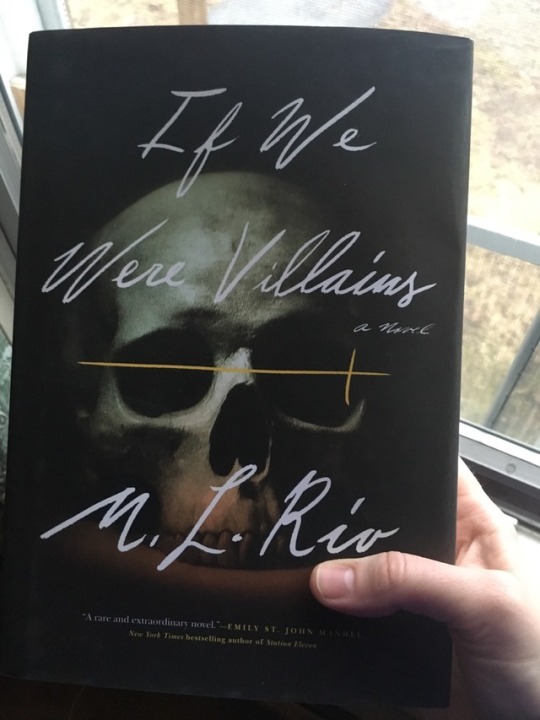
I have too much grading to dive right in, but look what's here just in time for spring break! @dukeofbookingham's book!!!! So excited to get started!
0 notes

